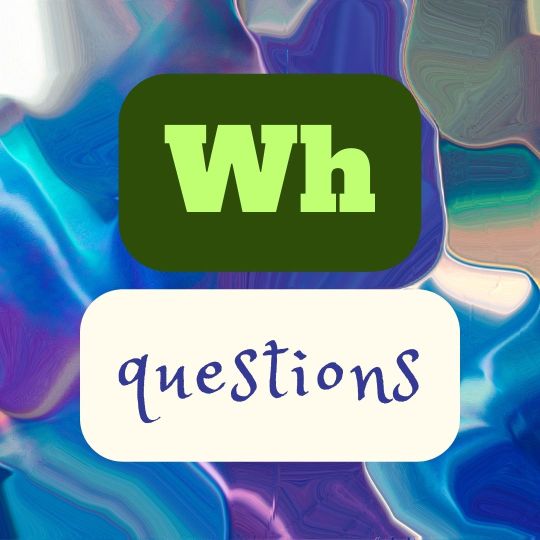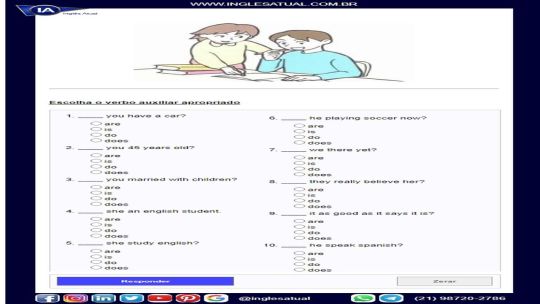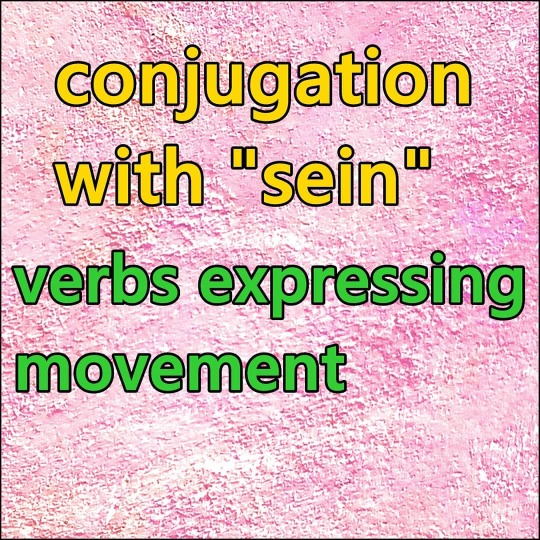#auxiliaryverbs
Text
Modal verbs
Modal verbs are auxiliary verbs that express notions like possibility, permission, obligation, etc.

Follow @everythingaboutbiotech for informative and useful stuff.
#modalverbs#modality#grammarlessons#learnenglish#esltips#englishgrammar#auxiliaryverbs#modals#englishLanguage#englishteaching#onlineteaching#englishhelp#grammarguide#grammarmatters#grammarcheck#englishisfun#englishteacher#teachingenglish#teachgrammar#englishlearning#englishvocabulary#vocabularywords#wordoftheday#wordpower#englishclass#englishstudent#eltchat#tesol#tesoltips#onlinelearning
14 notes
·
View notes
Text
Wh-questions (Interrogative Sentence)

Interrogative Sentence-Wh Questions:
Wh-Questions:
Wh-questions is a type of Interrogative Sentences. They start with words like who, what, where, when, why, how, which, whose, and whom.
These questions are particularly effective in extracting detailed information and encouraging thoughtful responses.
Who:
Who is coming to the party?
Used to inquire about a person or people. The answer typically includes names or descriptions of individuals.
What:
What are your plans for the weekend?
Used to ask about things, activities, events, or ideas. The response provides information or details about the subject.
Where:
Where did you go on vacation?
Used to ask about a location or place. The response includes details about the specific place.
When:
When is the deadline for the project?
Used to inquire about a specific time or date. The response includes details regarding the timing of an event or activity.
Why:
Why did you choose that career path?
Used to ask about reasons or explanations. The response provides the rationale behind an action or decision.
How:
How did you solve the problem?
Used to inquire about the method, manner, or process of doing something. The response includes details on the approach taken.
Which:
Which book do you want to read?
Used to ask about a specific item or choice among several. The response identifies the chosen option.
Whose:
Whose car is parked outside?
Used to inquire about possession or ownership. The response identifies the owner of the specified item.
Whom:
Whom did you meet at the conference?
Used when referring to the object of a verb or preposition in formal contexts. The response includes the person with whom the action or interaction occurred.
Word Order in Wh-Questions:
The general word order for Wh-questions in English is as follows:
Question word (Wh-word): This is the word that indicates the type of information being sought (who, what, when, where, why, how).
Auxiliary verb or modal verb: Following the question word, there is often an auxiliary verb (e.g., is, are, am, was, were, do, does, did) or a modal verb (e.g., can, could, will, would, should, may, might, must).
Subject: The subject of the sentence comes next, and it can be a pronoun or a noun.
Main verb: Finally, the main verb follows the subject.
Here are a few examples to illustrate the word order in Wh questions:
What is your name?
Wh-word: What
Auxiliary verb: is
Subject: your
Main verb: name
Where did you go yesterday?
Wh-word: Where
Auxiliary verb: did
Subject: you
Main verb: go
Why is she crying?
Wh-word: Why
Auxiliary verb: is
Subject: she
Main verb: crying
How can I help you?
Wh-word: How
Auxiliary verb: can
Subject: I
Main verb: help
By following this word order, you can form grammatically correct and meaningful Wh- questions in English.
Subject Questions:
Have you ever noticed that in casual conversations, questions sometimes sound a bit different than what you'd find in a grammar textbook?
The question words themselves take on the role of the subject.
This phenomenon, known as subject questions.
Subject questions (who? and what?) are a feature of informal spoken English where auxiliary verbs are omitted in questions.
They often occur in simple tenses and directly address the subject without using auxiliary verbs.
Here are examples:
Present Simple:
What impresses you in his pictures?
Who made this dress?
Past Simple:
What surprised you yesterday?
Who designed this building?
Questions to Subject Complement:
Whose? which? how many? and how much? are questions to subject complement.
Whose children came here yesterday?
Which of you won the prize?
How many students work here?
The words whose, which of you, and how many are not acting as subjects but as determiners.
Whose children is a determiner phrase that functions as the subject complement.
The actual subject is children.
The phrase whose children provides additional information about the subject.
Which of you serves as a determiner phrase, and the actual subject is you.
The phrase which of you acts as a modifier, specifying which particular group among you is being referred to.
So, in these sentences, whose and which of you are not subjects themselves but are contributing information about the subjects (children and you) as determiners.
Questions to Subject in Tense forms with 2 auxiliaries:
When forming complex tense forms with two auxiliaries, it's important to maintain proper grammar.
Here are examples of questions where what and who are subjects, using complex tense forms:
Present Perfect Continuous:
What has been happening?
Who has been leading the project?
Past Perfect Continuous:
What had been going on before you arrived?
Who had been working on this task?
Future Perfect Continuous:
What will have been going on when we get there?
Who will have been managing the team by next year?
Present Perfect:
What has happened to the missing documents?
Who has completed the assignment already?
Past Perfect:
What had occurred before the power outage?
Who had finished their work before the deadline?
Future Perfect:
What will have happened by the time we meet again?
Who will have submitted their reports by the end of the week?
In these examples, the questions involve two auxiliaries, such as has been, had been, will have been, has, had, and will have.
These auxiliaries are used to form the various complex tense structures, and they cannot be omitted for the sentences to maintain grammatical correctness.
Questions using to be + nominal part:
Who is your favorite author?
What is your biggest fear?
Who are the people in the photograph?
What is your job title?
Who is the captain of the team?
What are your plans for the weekend?
Who is that mysterious person over there?
What is the purpose of this meeting?
Who are the key players in the project?
What is the main ingredient in this dish?
Who is responsible for the decision?
What are the advantages of this new technology?
Who is the president of the company?
What is the solution to the problem?
Who are your closest friends?
What is broken?
Who is angry?
What is she?
Who is he?
What are they like?
What kind (sort) of woman is she?
What kind (sort) of thing is it?
What? and Who? to define the concepts of profession and kinship.
Here are the answers:
Profession:
What is she?
She is a doctor.
What is he?
He is an architect.
Kinship:
Who is she?
She is a mother.
Who is he?
He is a brother.
Negative Wh-questions:
Negative Wh-questions, where not is used after the subject in a sentence, are a common and grammatically correct way to inquire about the absence of an action or event.
This construction is often employed to express curiosity, seek clarification, or gather information about the reasons behind a negative occurrence.
Here are a few examples:
What did she not understand about the instructions?
This question seeks to identify the specific aspects of the instructions that the person did not comprehend.
Where did they not go during their vacation?
This question is used to find out which place or places the individuals intentionally avoided visiting during their vacation.
When did he not complete the assignment?
By using this question, you are inquiring about the specific time or period when the person failed to finish the assignment.
Why did we not receive a response to our email?
This question is posed to understand the reasons behind the absence of a response to the email.
Who did you not invite to the party?
This question aims to discover the individuals who were intentionally left out when inviting guests to the party.
How did the team not achieve its goals?
By asking this question, you are seeking information about the factors or circumstances that prevented the team from reaching its objectives.
Which topic did the teacher not cover in today's lecture?
This question helps to identify the specific topic or content that was omitted from the lecture.
Whose advice did they not consider before making the decision?
In this case, the question is directed at understanding whose advice was intentionally overlooked or ignored in the decision-making process.
To whom did you not disclose the confidential information?
This question seeks to identify the individuals or parties with whom the confidential information was not shared.
How did the project not meet the client's expectations?
By asking this question, you are inquiring about the specific aspects of the project that fell short of the client's expectations.
These negative Wh-questions provide a nuanced way to explore the reasons behind the absence or negation of certain actions, events, or choices.
Not after Auxiliary or Modal verbs:
The particle not is used after auxiliary verbs or modal verbs, in Questions to Subject and its Complement.
Here are some examples:
Who hasn't completed their homework yet?
Which team hasn't won a single match this season?
What can't you understand about the concept?
Who hasn't been informed about the schedule change?
Which guests can't attend the event tomorrow?
Wh-questions (Interrogative Sentence)
Types of Interrogative Sentences
Negative Declarative Sentences: Structure, Usage, and Style
Stylistic Elegance: The Role of Subject-Verb Inversion in Language
Read the full article
#auxiliaryverbs#complementquestions#detailedinformation#how#interrogative#modals#negativewh-questions#sentence#subjectquestions#thoughtfulresponses#Whquestions#what#which#who#whom#whose#why
0 notes
Text
🌟 Let’s talk about helping verbs forms in English! Helping verbs, also known as auxiliary verbs, assist the main verb in expressing tense, mood, voice, and more. They play a crucial role in constructing meaningful sentences. Understanding their usage can enhance your language skills and improve communication.
Join the English speaking class
https://www.anjujindal.com/english-speaking-course/
Instagram :- https://www.instagram.com/anju_jindal_life_career_coach/
Youtube link https://www.youtube.com/c/AnjuJindal/
Join the community- https://www.facebook.com/groups/2884491184945069
https://www.anjujindal.com
#anjs #anjujindal #LanguageLearning #Vocabulary #CommunicationSkills
#LanguageLearning #Vocabulary #CommunicationSkills #EnglishLanguage #CommunicationSkills #careergrowthmastermind
#EnglishGrammar #LanguageLearning #VerbForms #AuxiliaryVerbs #GrammarTips #LearnEnglish #EducationMatters #Linguistics101 #ESLStudents #VerbConjugation
0 notes
Text
Academic Tutors USA 🇺🇸 Language Institute | AcademicTutors.net | #academictutorsusa #academictutors #languageinstitute #onlinelanguagelearning #onlinelanguageschool #onlinelanguagecourse #onlinelanguageteacher #onlinelanguageclasses #languagelearning #languagestudy #languages #learnlanguages #languageskills #studylanguages #languagelover ||| #idiomas #idioma #idiomasonline #aprenderidiomas #idiomasenlínea #ingles #inglês #inglés #español #espanol #anglais #engels #englisch #englischlernen #auxiliaryverbs ||| — |||
http://AcademicTutors.net
#academictutorsusa#academictutors#americanenglish#ingles#englisch#esl#english#anglais#englischlernen#learnenglish#languagelover#languagelearning#languageschool#languageacquisition#Professor Lujan
0 notes
Photo

In the #presentperfect all verbs are conjugated with one of the two #auxiliaryverbs haben or sein. "sein" is for example used with verbs which express a change of state, like "to die" #germanliy #studyinggerman #dailygermanvocab #learngermanlanguagefree #dailydeutsch #germanoninstagram #germanlanguage #deutschlanguage #deutschlearnen #deutschlernen🇩🇪 #instalanguage #instagerman #instastudying #instadeutsch #deutsch #learngermanonline #learnforeignlanguagesonline #learninggermannow #learngermaneveryday #Learngerman #germantenses #germantense #presentperfecttense https://www.instagram.com/p/CFSy0uWCO3i/?igshid=z1aqe0rty6u9
#presentperfect#auxiliaryverbs#germanliy#studyinggerman#dailygermanvocab#learngermanlanguagefree#dailydeutsch#germanoninstagram#germanlanguage#deutschlanguage#deutschlearnen#deutschlernen🇩🇪#instalanguage#instagerman#instastudying#instadeutsch#deutsch#learngermanonline#learnforeignlanguagesonline#learninggermannow#learngermaneveryday#learngerman#germantenses#germantense#presentperfecttense
1 note
·
View note
Note
Hello, could you please add me to the airdrop tag list? Thank you!
hi, of course i'll add you. you're welcome 🥺💖
0 notes
Text
Easily Confused Words: Hell vs. He'll
Easily Confused Words: Hell vs. He’ll
Hell and he’ll are easily confused words.
The spell-check application of most word processing software programs would not catch a slip-up of these two words. Spell-check is looking for words that aren’t in its dictionary, and words that resemble words in its dictionary, but are possibly spelled wrong. Spell-check isn’t perfect. It doesn’t know and can’t guess what word you wanted, or what word…
View On WordPress
#auxiliaryverbs#contractions#ECW#englishsecondlanguage#hell#microfiction#TOEFL#easily confused words#ESL#kathleenwcurry
1 note
·
View note
Text
🖇️ Gramática ⏭️ Verbos Auxiliares ⏭️ Múltipla escolha!
🖇️ Gramática ⏭️ Verbos Auxiliares ⏭️ Múltipla escolha!
Sabe usar verbos auxiliares em inglês?
Vamos as atividades:
#gramaticaingles #englishgrammar #inglesbasico #inglesintermediario #auxiliaryverbs #verbosauxiliares #do #does
#aprendendoingles #inglesviazap #inglesatual #englishonline #aprendaingles #falaringles #speakenglish #inglesfacil #inglesonlilne #studyenglish #estudandoingles #ingles #homeoffice #cursodeingles #auladeingles…

View On WordPress
#aprendaingles#aprendendoingles#auladeingles#aulaonline#auxiliaryverbs#cursodeingles#dicasdeingles#do#does#englishgrammar#englishlyrics#englishmusic#englishonline#englishsongs#englishteacher#estudandoingles#estudaringles#falaringles#gramaticaingles#homeoffice#ingles#inglesatual#inglesbasico#inglesfacil#inglesintermediario#inglesonlilne#inglesparainiciantes#inglesviazap#onlineclasses#speakenglish
0 notes
Photo

Você tem dificuldades em aprender inglês? Já pensou em desistir quando chegou em #auxiliaryverbs, #vowels, #tenses, #irregularverbs and #phrasalverbs? Chegou a pensar que isso tudo é um pesadelo? Tudo bem pensar assim, mas não desista dos seus estudos. É normal ter dificuldades em alguns pontos do idioma. Encare essa dificuldade e vença para chegar ao seu objetivo. #aboutenglishtips #englishtips #dicasdeinglesonline #dicasdeinglês #dicasdeingles #dicasingles #studygram #aprenderingles #instagram #contentcreator #ingles #inglês #grammar #english #vocabulary #learnenglish #idioms #education #grammartips #englishlearning #englishlanguage #englishvocabulary #inglesparabrasileiros https://www.instagram.com/p/B8eP9elBXMQ/?igshid=a009ffodjwl7
#auxiliaryverbs#vowels#tenses#irregularverbs#phrasalverbs#aboutenglishtips#englishtips#dicasdeinglesonline#dicasdeinglês#dicasdeingles#dicasingles#studygram#aprenderingles#instagram#contentcreator#ingles#inglês#grammar#english#vocabulary#learnenglish#idioms#education#grammartips#englishlearning#englishlanguage#englishvocabulary#inglesparabrasileiros
0 notes
Video
👉 Hello, here's a really good Learn English Tip that you can 👍 LOVE and TAG your friend who could use this.❤ . ▶ This one is all about the auxiliary verbs or sometimes called the helping verbs. These look like main verbs but not. . ▶ There are 3 of them and they show you the tense of the sentence. These are HAVE, BE and DO. . ▶ We use HAVE with a noun. HAVE and HAS in the present tense, HAD in the past tense. . ▶ We use BE with an adjective. IS, AM, ARE in the present tense and WAS, WERE in the past tense. . ▶ We use DO with a verb. DO, DOES in the present tense and DID in the past tense. . ▶ Try it out with your own sentences and see if you can use these correctly! . 👉👉 Example Sentences to help 👈👈 . ▶ I HAVE two eyes . ▶ He HAD lots of money . ▶ She HAS lots of confidence . ▶ He WAS very rich . ▶ I AM short sighted . ▶ They ARE very confident . ▶ I DON'T have any money . ▶ She DOESN'T eat meat . ▶ He DIDN'T understand —- #learnenglish #englishgrammar #englishvocab #englishvocabulary #englishvocabularyinuse #helpingverbs #auxiliaryverbs #onlineenglish #englishonline #grammar #verbs #englishlearning #englishiseasy #englishtips #getenglishtips https://www.instagram.com/p/BxM73GXHyhx/?utm_source=ig_tumblr_share&igshid=iqe721c42g56
#learnenglish#englishgrammar#englishvocab#englishvocabulary#englishvocabularyinuse#helpingverbs#auxiliaryverbs#onlineenglish#englishonline#grammar#verbs#englishlearning#englishiseasy#englishtips#getenglishtips
0 notes
Photo

Can you complete this mini #opencloze test. Remember, just one word in each gap! #b2first #cambridgefirstcertificate . . #aprenderingles #aprenderinglesonline #aprenderinglesrapido #useofenglish #english #cambridgeb2 #b2first #firstcertificate #part2 #cambridgeexams #englishlanguage #englishlearning #englishonline #examenglish #ingles #examenesingles #miprofeingles #inglesonline #instaenglish #learnenglish #practiseenglishwithpete #speakenglish #studyenglish #prepositions #determiners #auxiliaryverbs #pronouns #linkingwords (at Barcelona, Spain) https://www.instagram.com/p/CRXZe2qhDdz/?utm_medium=tumblr
#opencloze#b2first#cambridgefirstcertificate#aprenderingles#aprenderinglesonline#aprenderinglesrapido#useofenglish#english#cambridgeb2#firstcertificate#part2#cambridgeexams#englishlanguage#englishlearning#englishonline#examenglish#ingles#examenesingles#miprofeingles#inglesonline#instaenglish#learnenglish#practiseenglishwithpete#speakenglish#studyenglish#prepositions#determiners#auxiliaryverbs#pronouns#linkingwords
0 notes
Link
Please take this Quiz and Audio Lesson to make sure you can use English Auxiliary Verbs correctly in short answers without the main verb.
Even if you are at an advanced level of English, it is a good idea to check that you can use these without making mistakes.

0 notes
Photo

The #presentperfect in the #germanlanguge is always formed with one of the two #auxiliaryverbs "haben" or "sein". Verbs expressing movement, like gehen, to go (walk) fahren, to drive schwimmen, to swim are conjugated with "sein"! #germanliy #studyinggerman #starttolearngerman #improvegerman #learngermandaily #practicegerman #speakdeutsch #speakinggerman #germanlearning #Learngerman #speakgerman #germanconjugation #german #conjugationofverbs #learndeutsch #deutschpolyglott #deutsch #polyglots #instalanguages #multilingual #germaninsta #instadeutsch #instastudying #instagerman #germannow #startgerman #germanverbs https://www.instagram.com/p/CFlKPwsi6us/?igshid=1q7mds5dniy0k
#presentperfect#germanlanguge#auxiliaryverbs#germanliy#studyinggerman#starttolearngerman#improvegerman#learngermandaily#practicegerman#speakdeutsch#speakinggerman#germanlearning#learngerman#speakgerman#germanconjugation#german#conjugationofverbs#learndeutsch#deutschpolyglott#deutsch#polyglots#instalanguages#multilingual#germaninsta#instadeutsch#instastudying#instagerman#germannow#startgerman#germanverbs
0 notes